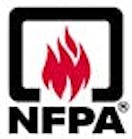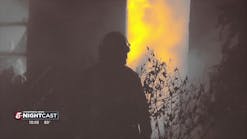I am not always successful, but I usually try and stop by a fire station on my way to work on some mornings. It is not that I am looking for a cup of coffee, since I am not a coffee drinker, but it is a good opportunity to get out of the office and hear what is really going on. Most firefighters will tell you what they think, what works and what does not work. I always cherish those comments and thoughts since I think sitting in an "ivory tower" and dictating policy without knowing the impact of that policy is wrong.
One morning when I stopped by a fire station, several firefighters were drinking coffee around the kitchen table and a couple of firefighters were eating breakfast. One firefighter/paramedic was having a hard time drinking his coffee. Every time he tried to take a sip, he managed to spill quite a bit of it. It was then that I noticed his hand was trembling.
I waited for the appropriate time when we were alone and I asked why his hand was shaking and trembling so bad. His answer was that he felt "burned out", that he saw himself changing physically and mentally, and he felt like the job was sucking the life out of him.
I have been hearing the term "burned-out" paramedics for as long as I can remember. I ask firefighter/paramedics, "What is burnout?" The answers I get vary as much as the number of cars on the road. No one can truly tell me what burnout is, but at times they said they felt burned out.
This prompted me to do a little research and I found that a psychologist by the name of Herbert Fruedenbeger claims credit for the term "burnout." Fruedenbeger describes burnout as "a debilitating psychological condition brought about by unrelieved work stress." He further describes it as "a depletion of energy and feeling of being overwhelmed by other people's problems."
Usually, people who indicate they are suffering from burnout have depleted energy and emotional exhaustion, lowered resistance to illness, increased depersonalization in interpersonal relationships, increased dissatisfaction, pessimism, and increased absenteeism and work efficiency. Many psychological experts say that burnout happens when a person starts in a profession with good intentions, but tries to reach unrealistic goals and ends up depleting his or her energy and losing touch with himself or herself.
The onset of burnout is usually slow and not noticeable. The early symptoms include a feeling of emotional and physical exhaustion; a sense of alienation, cynicism, impatience, negativism and feelings of detachment to the point that the individual begins to resent work.
In some firefighter/paramedics, the irony of burnout is that it happens to the recruit who came to fire station on his or her first day enthusiastic and brimming over with energy and could not sleep the night before in anticipation of reporting the next morning. This firefighter/paramedic generally has a very high expectation of what can be accomplished and all the lives he or she is going to save. As time goes by and most of the calls are not true emergencies, his or her goal of saving many lives is not achieved, the enthusiasm dies and a listlessness sets in. Instead of lowering objectives or accepting reality, the person's frustration is bottled up.
If you stand back and look at the definition of burnout and its impacts, it would apply not only to firefighter/paramedics, but anybody in the helping or service professions, such as ministers, nurses, or customer service representatives. I always thought that "burnout" was reserved only for those firefighter/paramedics on the busiest ambulances, but my experience has shown me that this is not true. Some firefighter/paramedics love being on busy ambulances, while others on slower ambulances scream the loudest when they get dispatched on a call.
The other factor that I think feeds the "burnout" phenomenon is those firefighter/paramedics who are feeling "burned out" and like telling other firefighter/paramedics that they should be feeling the same way. Some resist, but others buy into the commiseration and eventually start feeling "burned out" themselves.
If you are feeling "burned out," what can you do? You can become cynical and bad-tempered, and feel like you are wasting time in your career, or you can take the attitude that somewhere in the course of your shift, on one of the calls you responded on, you probably made somebody's life better that day.
Many firefighter/paramedics I have talked to tell me they resist any thoughts of "burnout" by realizing how good they have it. One firefighter/paramedic put it in perspective when he told me that when he eats dinner, he is getting paid more than the dinner is costing him. Yes, there are the times when meals are interrupted, or you get no meal at all, or your partner gets on your nerves, or you miss the kid's soccer game or you get that 3 A.M. "flu-like-symptoms" call. But another firefighter/paramedic told me of how on every shift he gets paid for watching TV, reading a book and even sleeping.
Other firefighter/paramedics tell me they laugh to blow off the steam. Personally, many pictures I have seen taken from inside a fire station or in the emergency room driveway seem to show people in this profession laughing and having a good time. There are always the firehouse stories of the practical jokes pulled on a rookie or the chief, or of some person in the fire service who just could not figure out how to open a compartment door. Some would say this is a coping mechanism. I say it is having a good time, enjoying the people you work with and liking the work you do.
I have always said that a career in the fire service, and especially being a firefighter/paramedic, is not for everyone. Many people will stay in the fire service and progress through the ranks to a company or chief officer position. Others will look for some "bridge" to another career, such as nursing or a physician assistant. But their disappointment will not go away, since they will face many of the same challenges that they faced when they were firefighter/paramedics.
You do not have to be manic to survive "burnout" as a firefighter/paramedic, but if you think about the many positive things when you are feeling somewhat down, you'll realize things are not bad as they seem.
Finally, remember a profound statement by retired U.S. Senator Robert Dole: "When it's all over, it's not who you were; it's whether you made a difference."
Gary Ludwig, MS, EMT-P, a Firehouse contributing editor, is a deputy fire chief with the Memphis, TN, Fire Department. He has 28 years of fire-rescue service experience, and previously served 25 years with the City of St. Louis, retiring as the chief paramedic from the St. Louis Fire Department. Ludwig is vice chairman of the EMS Section of the International Association of Fire Chiefs (IAFC), has a master's degree in business and management, and is a licensed paramedic. He is a frequent speaker at EMS and fire conferences nationally and internationally. He can be reached through his website at www.garyludwig.com.




